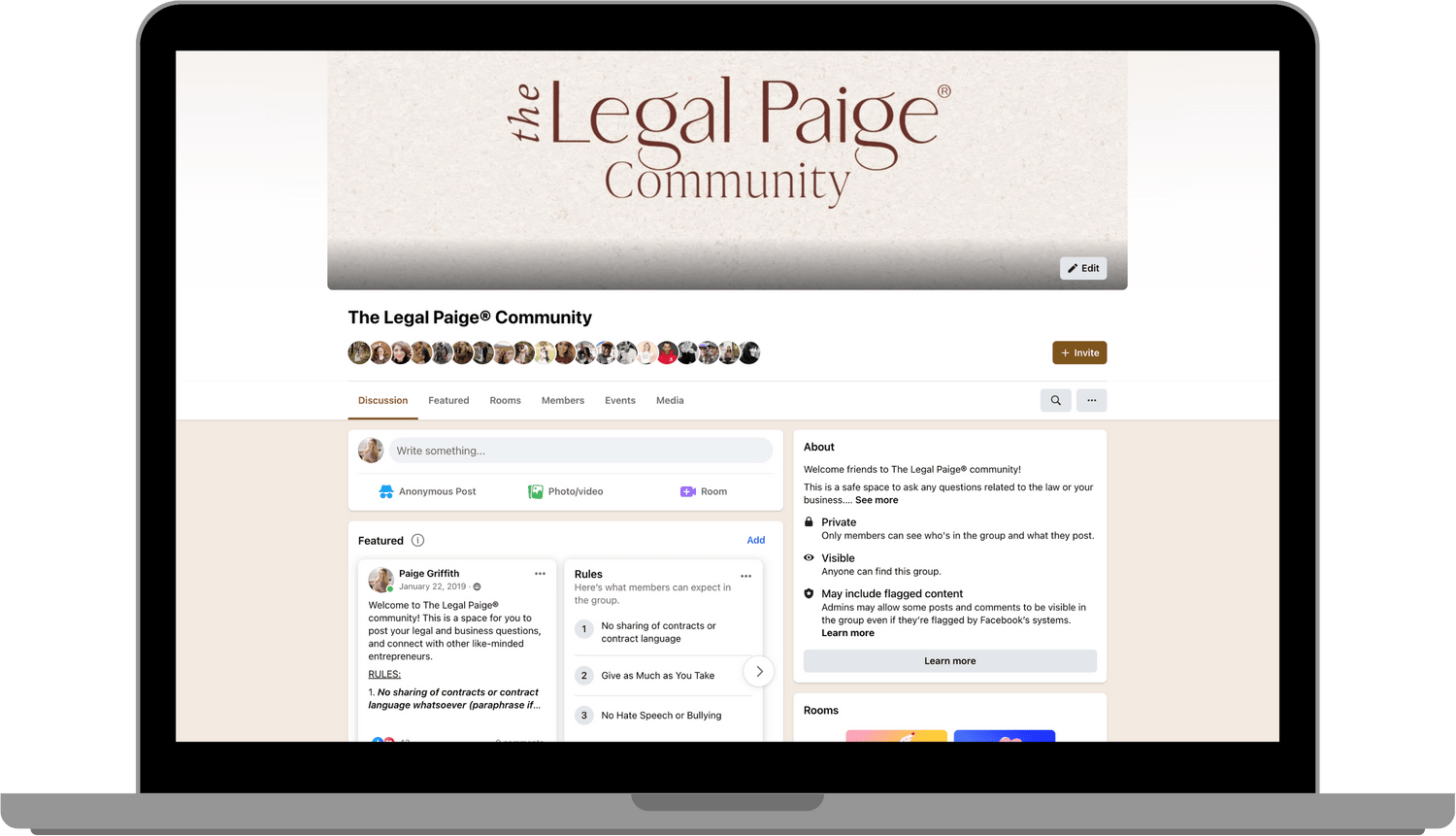
What To Do When Someone Copies Your Business
Imagine this: You’ve been working every day for the past three years on your own business. You spend your weekends perfecting your website, and stay up late planning your social media content. You put every ounce of your creativity, passion, and hard work into this business day in and day out. And then one day, you’re scrolling through your Instagram feed and you notice someone is using the photos you just posted on your website. When you click on their profile, their business name is almost identical, your logos are similar, and some of the content they are posting YOU created.
They say imitation is the highest form of flattery, but here it just feels rotten. You have put too much effort and time into your business to have someone else piggyback off of your work. Unfortunately, this happens all too often in the entrepreneurial world. So what do you do?!
1. Protect Your Intellectual Property
A good way to help protect your business against infringement is to make sure you are protecting your copyrights and trademarks by registering them with the Copyright Office and/or the United States Patent and Trademark Office (“USPTO”).
A Copyright does not have to be registered to be protected. For instance, when you frame a shot and the camera clicks, the photograph that was just taken is considered a copyrightable work of art and you gain some common law copyright rights. Although a work of art does not have to be federally registered to be protected, registering your copyright is a good way to notify others that they cannot and should not infringe on your work. Once it is federally registered, you can use the copyright symbol - ©. And, a copyright lasts for the life of the author, plus 75 years. If it doesn’t have an author, the copyrighted material will last for 95 years from publishing or 120 years after creation, whichever is shorter.
A trademark refers to a recognizable phrase, word, or symbol that denotes a specific product and differentiates it from all other products of its kind. It identifies the brand name of a particular product or service. Trademark rights can last forever as long as you are using the mark in commerce! Similar to copyrights, trademarks do not have to be registered to be protected through common law, but their protection is not as widespread if it is not federally registered. Thus, registering your trademarks is ALWAYS a solid legal idea. And you’ll get to use this symbol ® to put others on notice that you own the mark!
2. Notify All Consumers of Your Intellectual Property Rights Through Your Website Terms and Conditions
If you’re operating your business online, you want to let others know about your intellectual property rights through your Website Terms and Conditions. Website Terms and Conditions set out your business rules when consumers interact with your website. Part of your Website Terms and Conditions should include information regarding the ownership and use of your intellectual property, including the use of the goods or services consumers may purchase from you. For example, if you sell courses on your website, your consumers should know through your Terms and Conditions that they cannot share the course with anyone without your permission. Or, if you sell digital products, you’ll want to include the copyright rights to those digital works. Essentially, the name of the game here is to notify all users of your website that you own all copyright ownership to images, copy, logos, brand phrases, brand names, etc. that are located on your website and they cannot copy or use anything without your express permission.
Although having Terms & Conditions is not legally required (unlike Privacy Policies), it does help deter others from copying your content and gives you good legal proof that you notified a potential infringer of this prior to taking any necessary legal action. This is why we ALWAYS recommend having T&Cs!
3. Communicate About The Infringement
Even if you do your best to protect yourself from infringement, it can still happen. If you do experience someone copying you, it’s best to first give someone the benefit of the doubt because sometimes people don’t even know that it is illegal to copy someone else's work. Once you notice someone is copying your business name, logo, or content you should immediately reach out to them via email or letter. Make sure it’s documents, but remember that this doesn’t have to be a harsh interaction. Just send a pleasant (but direct!) email letting them know what content they have infringed upon and ask them to take it down immediately. Sending this initial email or letter will not only be productive but will assist in giving you a clear legal record of notice in case you do need to get a court involved. It shows that you informed them of infringement. Oftentimes intellectual property issues are resolved by simply pointing out to the person and/or business that they are doing something illegal.
Now if someone does not respond to your email or letter or refuses to take down the content, that’s where an attorney may become helpful. A formal demand letter or cease and desist letter with a law firm's letterhead will come next to show that you are serious. In most cases, this nudges the infringer to delete the posts. If the infringement continues, your attorney may suggest you file suit against the infringer claiming damages.
In Summary...
Protecting your intellectual property before infringement occurs is a vital step to ensure your hard work is not copied. Registering your trademarks and copyrights as well as having solid Website Terms and Conditions on your website (located in the bottom footer for someone to easily find) are both solid ways to protect yourself against infringement. If you are in need of Website Terms and Conditions you can find our highly recommended template here which also includes a Privacy Policy!
If you are facing an issue of infringement or are ready to take the next step to protect your intellectual property and are looking for an attorney to help with the registration of your intellectual property, you can contact Paige and her Associate Attorneys at Griffith Law today for assistance!
THIS BLOG POST IS NOT A SUBSTITUTE FOR LEGAL ADVICE. EVERY SITUATION IS DIFFERENT & IS FACT-SPECIFIC. A proper legal analysis is necessary based on your location and contract. Consult an attorney in your home state for advice regarding your contract or specific legal situation.

Join the Community
Be a part of 8000+ TLP Community Members in this safe space and get real-time answers from Paige and her legal team daily!

Leave a comment